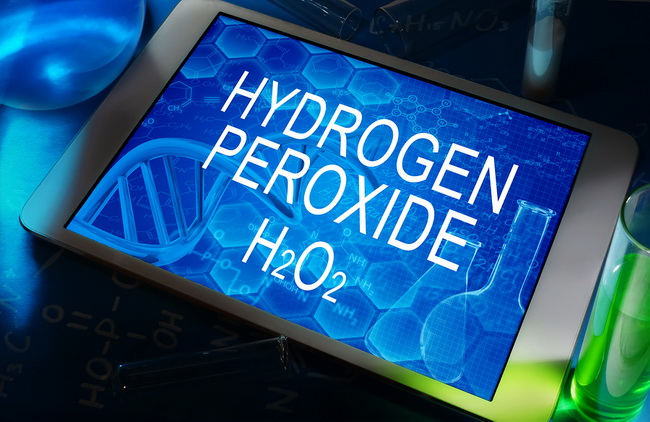- Make It Yourself Lavender Heart-Shaped Bath Bombs!
- 20 Things You Never Knew About “Down There”
- 12 Best Foods For Those Suffering From Arthritis Pain
- 12 Personal Hygiene Mistakes Almost Everyone Makes (Mom Never Told You About #4!)
- 15 Medicinal Plants And Herbs From The Cherokee People
- 12 Mind-Blowing Benefits Of Drinking Coconut Water During Pregnancy
- 12 Outstanding Winter Foods That Won’t Fatten You Up Like A Christmas Turkey
Why Do Antiseptics Sting Open Cuts?

Photo credit: bigstock.com
You probably remember the first time you fell when you were a child and skinned your knee. Your mom ran to the medicine cabinet and brought back a bottle of peroxide to flush out any harmful bacteria so you wouldn’t get an infection. One shot of the peroxide and it immediately began to fizz, but more importantly, it began to sting. The fizzing and the stinging took your mind off your skinned knee, but every cut you got going forward would remind you that the treatment you were going to get was going to hurt almost as much as the original injury. The question remains: Why do antiseptics sting?
Some people use rubbing alcohol on cuts and bruises and it’s being mentioned here because both it and hydrogen peroxide act in the same way. The stinging doesn’t have anything to do with cleaning out the injured area. It has to do with the activation of a receptor that makes your skin feel hot.
The pain occurs when the receptor is activated, which causes a burning sensation. This burning does not last long and it isn’t harmful, but it is the cause of the stinging. Besides the stinging, many doctors don’t feel that an antiseptic should be administered to an open wound, as it is not the most effective way to treat it.
What’s the difference between antiseptic and antibiotic?
Antiseptics get rid of any microorganisms on the tissue surrounding the injury and also keep them from growing any further. The difference between an antiseptic and an antibiotic is that an antibiotic only focuses on a specific area where antiseptics can cover a larger area and level of activity, such as focusing on viruses, bacteria, fungi, protozoa as well as prions. The most common antiseptics currently in use today are hydrogen peroxide, silver nitrate, boric acid, povidone iodine, sodium hypochlorite, and silver sulfadiazine.
The purpose of the antiseptic is to clean skin that is still intact in order to get it ready and prepped for an injection. However, the use of an antiseptic on an open wound has been debated through the years. While it does kill bacteria, many doctors have found that it actually impedes healing instead of speeding it up.
Continue to Page 2

































